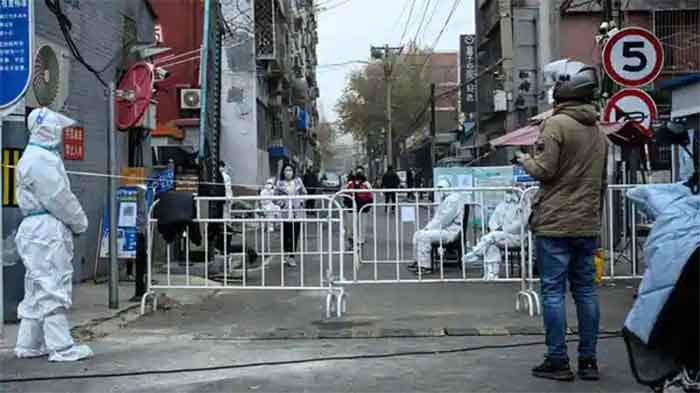
“I could not count the times during the average day when something would come up that I needed to tell him. This impulse did not end with his death. What ended was the possibility of response.” (Joan Didion)
From their initial pairing in 1927, Stan Laurel and Oliver Hardy made up one of the 20th century’s most beloved comedy duos. Upon Hardy’s death in 1957, Laurel wrote: “What’s there to say? He was like a brother. That’s the end of the history of Laurel and Hardy.”
And he meant it. Stan Laurel never again appeared on stage or in a film. He lived out a solitary life in a tiny apartment in Santa Monica, California — answering fan mail and his telephone. His number was listed, so he’d often end up chatting with any curious fan who dialed.
Laurel was notoriously the workaholic of the two comics — perpetually conjuring up gags for the team. After Oliver passed, Stan never stopped writing bits for him and his partner. Until his own death in 1965, Laurel privately and lovingly penned sketches he knew would never be performed.
This is an incredible expression of mourning from within a culture of grief-denial.
***
As I type this, at least 107,000 people have lost their lives in the United States to a shape-shifting virus known as Covid-19. About 1 in 7 Americans now know someone who has perished since March. You can meet some of those lost souls here and here. Many of them died frightened and all alone. Some of them were not even allowed a funeral. Others were unceremoniously buried in mass graves. All this, of course, is transpiring amidst convulsive, explosive racial strife.
I recall, after the events of September 11, 2001, New York City was plastered with small, handmade posters made by those hoping against hope that their loved one survived the attacks and had been seen. These omnipresent fliers became emblematic of my hometown’s unexpressed grief.
But 9/11 was different. Sure, it left a deep footprint of draconian changes in the realm of security and surveillance but the episode itself felt far more tangible and finite than the Covid-19 pandemic.
The collective grief of 2020’s monumental, unresolved losses — combined with other kinds of losses caused by the pandemic response/fallout and other societal schisms — is contributing to an unprecedented public health crisis for the United States and thus, for the world.
Will we, can we rise to the task from within a culture of grief-denial?
Everyone experiences grief but virtually no one wants to talk in-depth about it. As a result, something with the potential to bond us instead remains a mystery. We connect over grief, not as a universal human condition but rather, as yet another topic barred from polite conversation. Our avoidance goes as far as choosing euphemisms like “passing away” instead of uttering the word “death.”
Consider a common way many of us are first conditioned to perceive grief. Let’s say a grade school teacher had a death in the family. Typically, after about a week of absence, she’d return to the front of the classroom. Life went on. The tacit lesson: Grief is not unlike catching a cold. It may keep you home for a few days but just buck up and stop crying. You’ll recover soon enough and things will return to normal.
It’s no surprise that we’ve each internalized so many myths and misconceptions pertaining to grief, e.g:
Grief is an Emotion
It’s really an evolving bundle of volatile and persistent emotions. The contents of this bundle vary from person to person and then, from hour to hour.
Grief is Something To “Get Over”
You never “get over” a loss. At best, you learn to live with it. That said, please brace yourself for some well-intentioned but counterproductive “advice,” like:
- “At least they’re not suffering anymore.”
- “They’re in a better place now.”
- “They wouldn’t want you to be sad.”
- “You have to be strong.”
(Some people take things further into the realm of insensitivity. See “People Close to You Will Understand” below for more about this trend.)
Grief Exists on a Timeline of 5 Stages
There’s nothing linear about mourning. Some “stages” may exist but they come and go as they please. There is no one “right” way to grieve and there is no way to effectively prepare for it. Remember, we’re not only grieving for who or what we’ve lost. We concurrently grieve for ourselves and for potential experiences of which we’ve been deprived.
It’s pretty obvious why some prefer not to talk about this particular topic, huh? I hope it’s becoming even more obvious why we desperately need to follow the lead of Mister Rogers and openly discuss this particular topic. As he often stated, anything mentionable can become manageable.
https://www.youtube.com/watch?v=LDnDs1Rz4ZQ&feature=emb_title
A big part of something being mentionable is having people to mention it to. Create a support system, if you can. As Bill Shakespeare advised, “Give sorrow words.”
There are a couple more grief-related myths to challenge. Doing so will conveniently help us bring this discussion back around more specifically to the Covid-19 pandemic:
Grief is Only About Death
Far from it. We can and must mourn any loss we deem worthy. We may grieve the loss of tangible entities like our health, a job, relationships, financial security, and our homes — all of which seem particularly at risk in 2020. Equally as germane right now are the more abstract losses any of us can experience, for example: loss of innocence, youth, safety, control, stability, confidence, optimism, trust, and so much more.
“Time Heals All Wounds”
I’ll leave this explanation to the wonderful Joan Didion, who counsels: “Grief is different. Grief has no distance. Grief comes in waves, paroxysms, sudden apprehensions that weaken the knees and blind the eyes and obliterate the dailiness of life.” With this in mind, please remain aware that grief can become unmanageable whether it’s mentioned or not. Complicated grief is a serious condition that usually requires intervention from a mental health professional. Ask for help, please.
People Close to You Will Understand
Speaking of grief getting complicated, be warned: Reaching out to lean on people you expect to be supportive doesn’t always go as planned. As a result, some mourners may end up suffering twice: once from the loss, and a second time from the lack of understanding or useful support from the people closest to them. It’s very hard for grieving people to stand for themselves and if they do, they risk being judged for grieving “poorly.” Take-home message: It is absolutely crucial that we never invalidate someone else’s grief and never allow anyone to invalidate ours. If someone you know is grieving a loss, resist the urge to find the “right” words. Instead, make space for that person to talk about who or what they’ve lost.
***
In these months of turmoil and uncertainty, it is advisable, essential even, that we lean on compassion. Just as we are, the people we encounter are attempting to navigate uncharted territory. None of us have the relevant life experience to call upon right now and thus, we’ll rarely be at our best — for quite a while. Keep this in mind.
Lower your expectations — of yourself and others. Be patient and empathetic. Be available. Offer your full attention whenever you’re able to do so. Stay open-minded when listening to someone who is mourning. If your friends and family do not respect your process, seek out professional help.
Either way, go where your bereavement leads you; do so while resting on a foundation of compassion and self-compassion. Stay present through the immutable process of grief. Feel what you need to feel, cry as much as you need to cry. This is your story to write.
Hold on firmly to whatever meaningful ways you have to keep emotions, rituals, spirits, and memories alive in your heart. Perhaps you can take some inspiration from Stan Laurel. It doesn’t matter if the post-loss sketches you write will ever get performed. What may matter — more than you ever imagined — is that you just keep on writing them.
Sending you all some socially distanced hugs…
***
Mickey Z. can be found on Instagram here. He is also the founder of Helping Homeless Women – NYC, offering direct relief to women on the streets of New York City. To help him grow this project, CLICK HERE and make a donation right now. And please spread the word!
Welcome to a Pandemic of Collective Grief by Mickey Z. is licensed under a Creative Commons Attribution 4.0 International License.
Based on a work at https://worldnewstrust.com/welcome-to-a-pandemic-of-collective-grief-mickey-z.
SIGN UP FOR COUNTERCURRENTS DAILY NEWS LETTER
















































